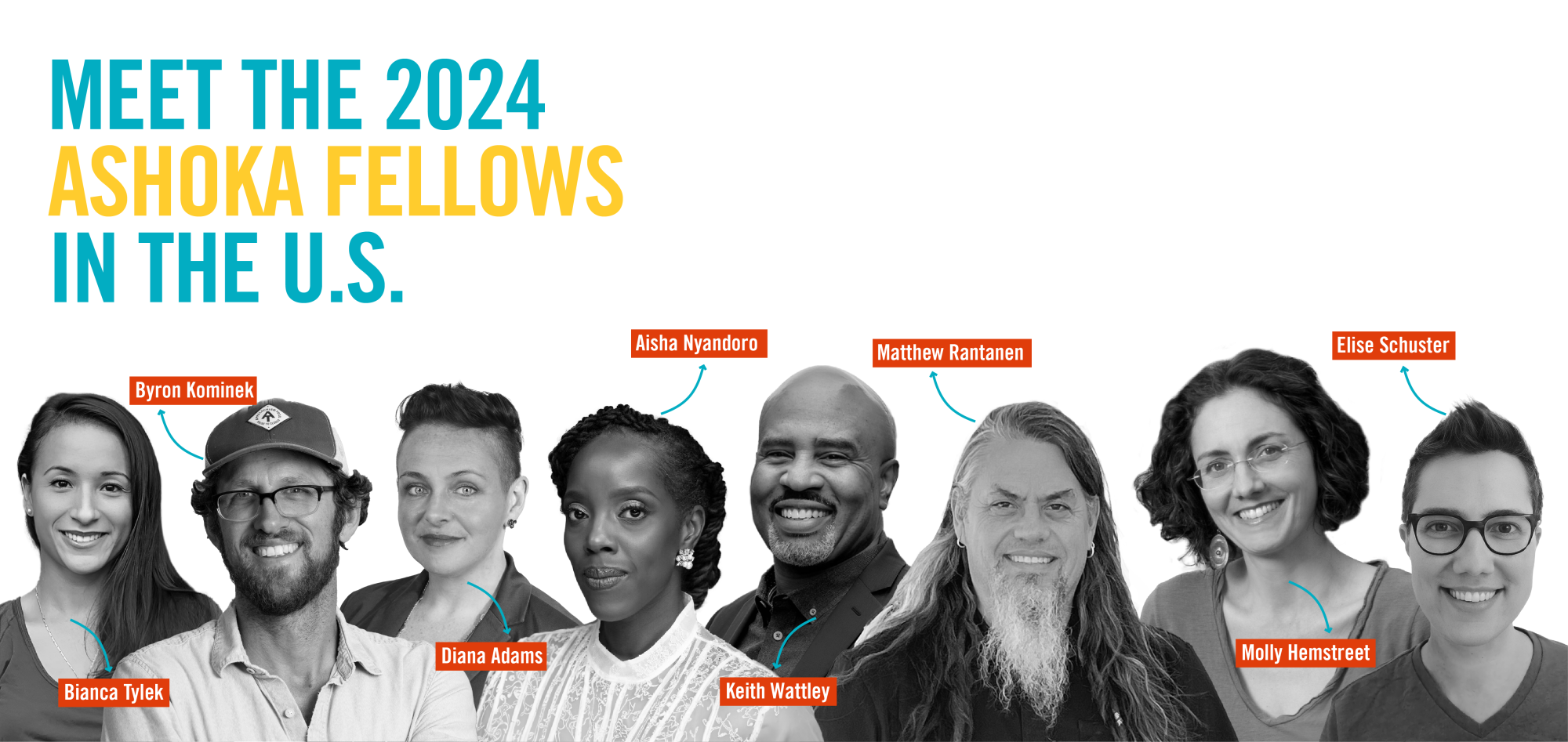
How can we set up rural economies to thrive? What if we harness solar energy for agriculture? What does the future of family and care structures look like? What if prisons were places that heal, not harm? These are some of the questions our newest Ashoka Fellows in the U.S. are working on – creatively, persistently, collaboratively, and in ways that allow all of us to contribute as changemakers.
We're happy to welcome these new Fellows and shine a light on their powerful ideas. Stay tuned for deeper dives into their insights and impact in the weeks ahead.
Discover below!
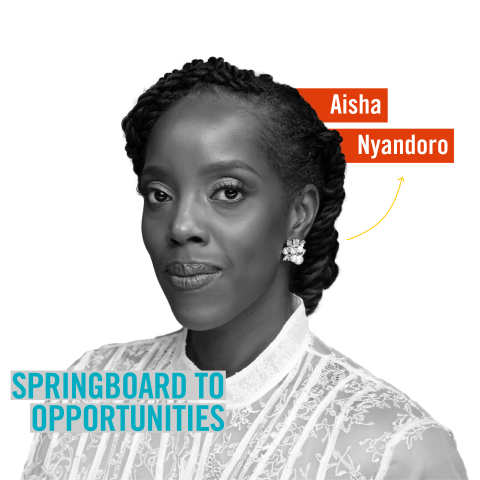
New idea: Aisha has designed and successfully implemented the longest-running guaranteed income initiative in the United States at a moment when demand for newer, better approaches to economic and racial inequities is peaking. Her courageous experiment has sparked a national movement and is unlocking both private and public dollars.
Why we’re excited about Aisha: She has improved and implemented an idea that has never managed to take root in the United States: invest directly in the most vulnerable Americans with cash assistance as a temporary lifeline, a runway to financial freedom, and ultimately a more choice-filled life. Her work represents a fundamentally different alternative to existing welfare programs, and challenges some of our most harmful narratives about the causes of poverty – all underpinned by compelling data about its effectiveness both in the short and long term.
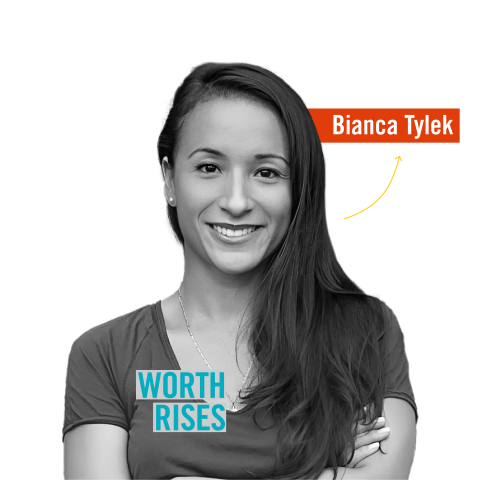
New idea: Bianca is exposing the invisible ecosystem of actors that financially benefit from incarceration. She is dismantling the financial incentives for each sector of the prison industry to pave a road toward transformational change in the carceral system.
Why we're excited about Bianca: She knows that as long as these strong, invisible incentives to keep people incarcerated exist, we will figure out a way to keep doing so. She is using her expertise in financial markets and law to champion an expert strategy to expose these incentives and dismantle the $80 billion-dollar prison industry – starting with prison telecoms.
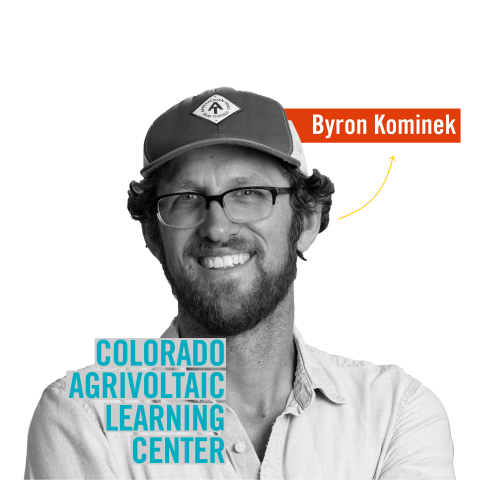
New idea: Byron is championing a better, more sustainable method of solar energy deployment via a new field called “agrivoltaics” where solar panels are co-located on workable farmland in ways that address land scarcity, climate change, and farming viability simultaneously.
Why we're excited about Byron: As demand for solar energy grows exponentially, so too will demand for land on which those solar panels will be installed. Amidst the current rush to replace millions of acres of farmland with solar panels, Byron is urging us to consider how a small, relatively inexpensive design change – raising panels off the ground an additional four feet – can head off a race to the soil degraded bottom and preserve precious farmland for generations.
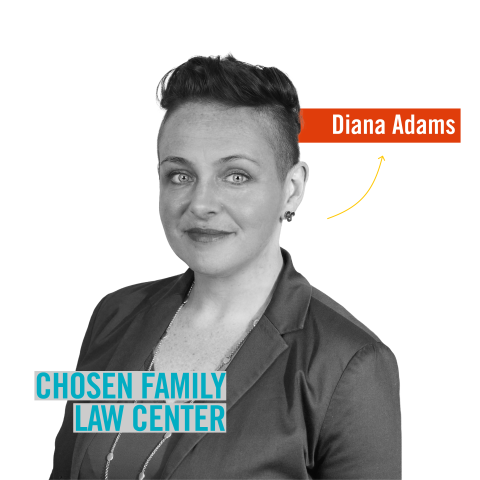
New idea: Diana is expanding the legal and cultural definition of “family” – and proving that a more inclusive approach can help everyone.
Why we're excited about Diana: The nuclear family model may no longer be the norm in the US (less than one-fifth of families fit the mold of two adults living with their minor children), but it's still the basis for social and economic benefits like health care, tax breaks and citizenship. Diana Adams believes that all families, regardless of biological relationship or legal marriage, are deserving of equal rights and recognition.
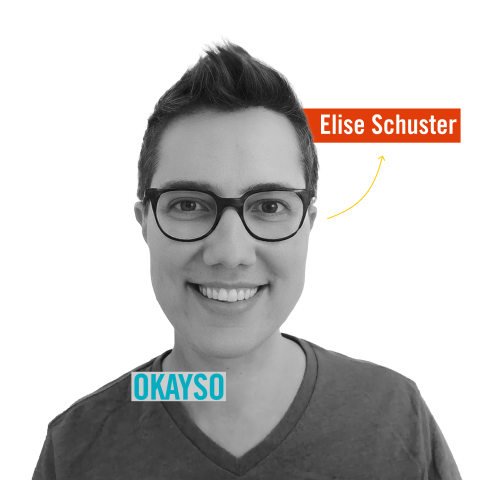
New idea: Against the backdrop of a growing youth mental wellbeing crisis, Elise is reinventing the support service ecosystem to expand and improve public health access for young people so they can live without shame or fear.
Why we're excited about Elise: Recognizing that taboo topics like birth control, consent, romantic relationships and gender identity are ignored by traditional mental health practices and programs, Elise’s non-profit, Okayso, directly addresses the unspoken, having conversations with young people that other adults in their lives are too uncomfortable or ill-equipped to discuss. Elise believes that it is these problems, left unaddressed, that lead to many of the larger mental health issues young people face down the line.
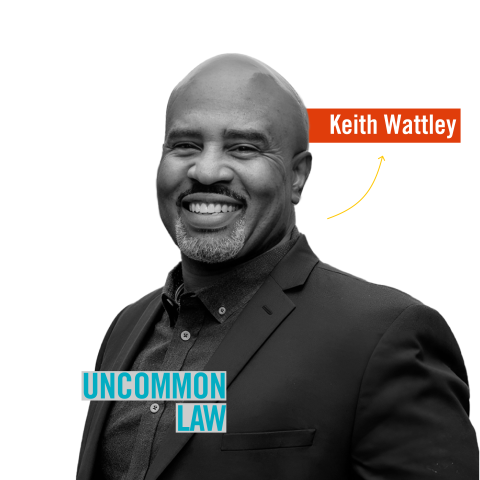
New idea: Keith is reforming the discretionary parole system which, despite its mandate, overwhelmingly fails to create pathways home for people serving long (and life) sentences who no longer pose a danger to society.
Why we're excited about Keith: He founded UnCommon Law as the country’s first organization to explicitly target the discretionary parole process as the most overlooked contributor to mass incarceration. UnCommon Law was built around the idea that most people are capable of causing harm under the wrong circumstances, and capable of healing under the right ones.
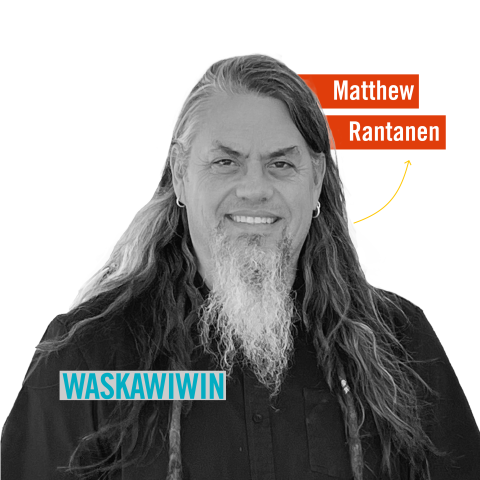
New idea: Matthew Rantanen is partnering with Tribes to solve the problem of broadband access and affordability in Indian country, which is one of the barriers that has kept tribes from fully participating in the 21st century economy. This requires the hard-earned trust of Tribes as well as policymakers, and a new vision for the architecture of the internet overall.
Why we're excited about Matthew: He is spearheading a massive leap forward for infrastructure on American Indian land. Matthew is building a national network of Tribal infrastructure builders locally managing their own networks, focused on seamless, inclusive connectivity and the protection and privacy of their users.
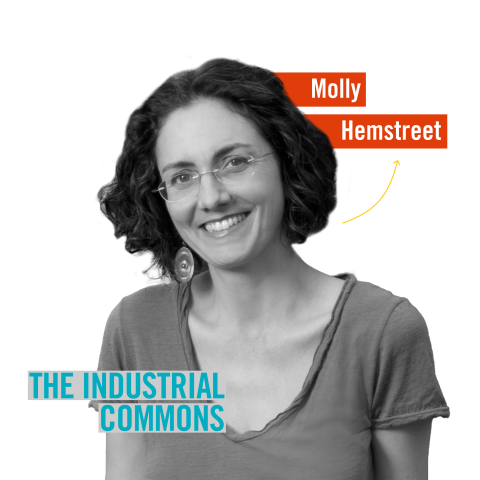
New idea: Molly Hemstreet is demonstrating and spreading a new economic development model for rural America, rooted in worker-owned manufacturing, heritage industries, and a stable middle-class labor market.
Why we're excited about Molly: Molly has developed a new playbook for economic revival in post-industrial America where success is measured not by big box stores and quick returns for outside investors but by good-paying, sophisticated manufacturing jobs woven together in a network of mutually reinforcing worker-owned cooperatives.
Aisha, Bianca, Byron, Diana, Elise, Keith, Matthew and Molly join our global network of almost 4,000 social entrepreneurs in 90+ countries (since 1981), including 300+ Ashoka Fellows here in the U.S. (since 2001). As ever, we extend deep gratitude and appreciation to each of our Fellows and to their colleagues and communities - as well as to Ashoka’s community of friends and supporters.